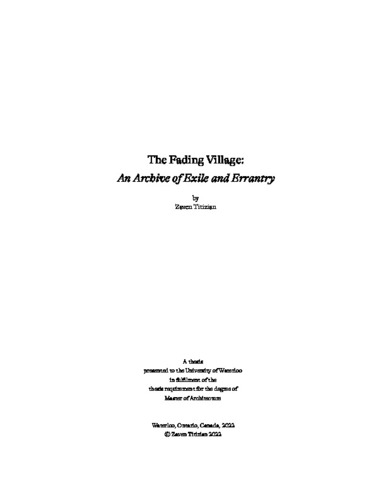| dc.description.abstract | Institutional archives—our hegemonic repositories of cultural memory—are in the midst of an identity crisis. They are no longer seen as neutral sites of knowledge retrieval, but rather as instruments of knowledge production. These archives, which are as reliant on their built environs as the matter they safeguard, are currently being critiqued, dismantled, and reimagined.
Within this work, I offer my own contribution to the growing body of living- and counter-archival projects which resist the fantasy of a comprehensive History of the world and critically question the dominant narratives present in our epistemological canon.
Ironically, I have undertaken this work during a sedentary time of institutional closures, social distancing, and travel restrictions. So, rather than looking for answers elsewhere abroad, I have chosen to look more closely at the things that have accumulated next to me: viewing domestic, diasporic space as an archive in itself—one that is alive, growing, and errant.
In the process, I have traced the invisible networks that rearrange a hostland’s environment and tether a diaspora to their homeland—through the things they leave behind, those they bring with them, and others they find (or make) along the way. These everyday objects preserve the narratives of communities displaced—whether by economic, political, or environmental crises—and they reveal the spatial consequences of translation.
This work begins and ends in a house—in the home of my grandparents—who were born in an Armenian diaspora community in the mountains of northern Syria; migrated to Beirut, Lebanon, to raise a family; and then fled as refugees, after almost 15 years of civil war, to permanently settle in Canada. It is here, in the Kessabtsi community of Cambridge, Ontario, that I draw relations between history, identity, and the land.
In the end, my thesis is an assemblage of writings on the subtle moments of inheritance—when knowledge about a distant place is unearthed—during long car rides or over coffee in the garden. As I collect, catalogue, and document the artifacts of a place I have never been, I explore a familiar question: What constitutes an archive? | en |

